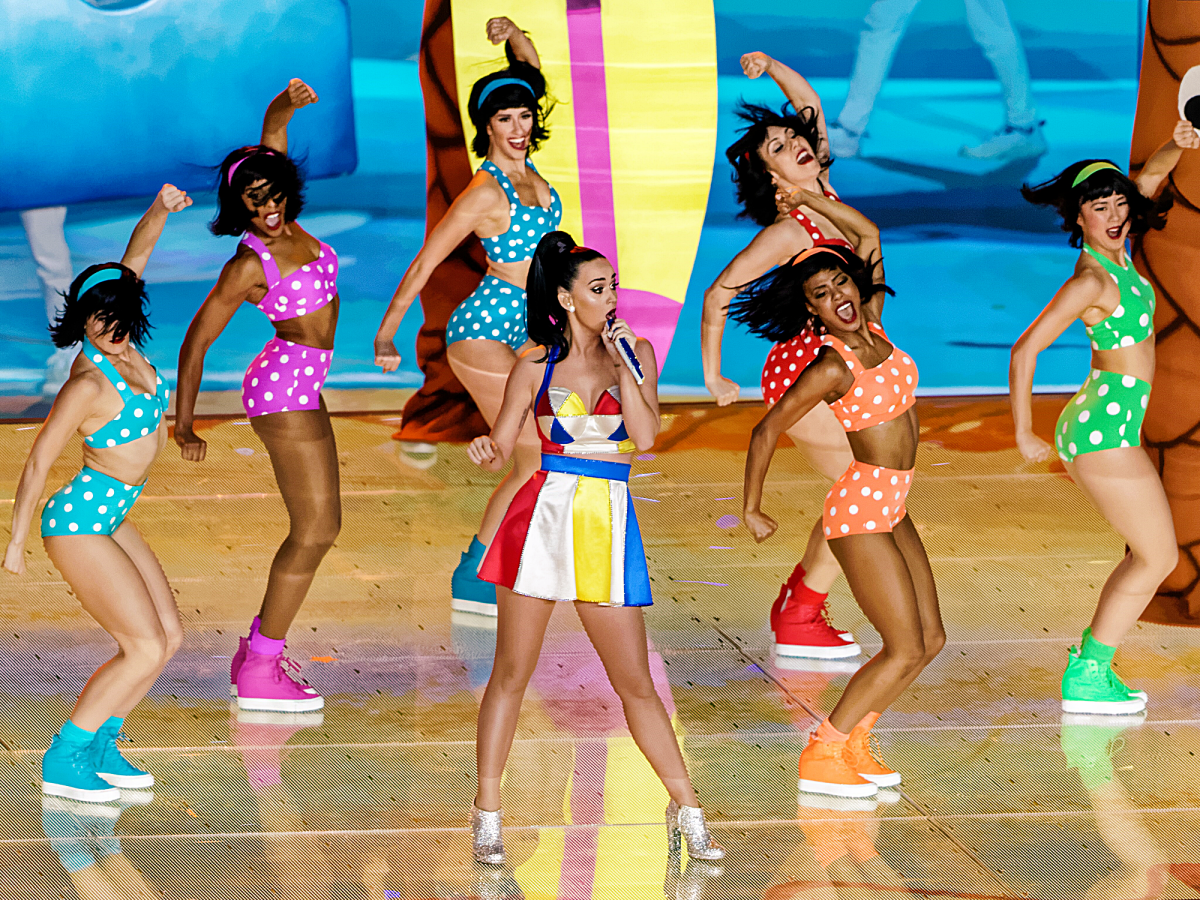Introduction to Brazilian Popular Music
Brazil is a large country in South America—larger than the 48 contiguous US States—with a population of nearly 200 million people. Over the past 15 years, Brazil has achieved an economic growth rate rivaling only China on the world stage, and is poised to join the largest five economies in the world by the end of 2014. As the second-largest country in size and population in the Western Hemisphere, populated by waves of diverse immigrants, Brazil shares a lot of history and musical influences with the United States.
Brazilian music has had a profound influence on American and World music. As a large part of the African diaspora, Brazilian music has been a major part of the creativity and influence of people of African dissent throughout the world. In the 1920s, Brazilian Samba evolved in parallel to jazz influences from the United States and became an international craze that swept the world, especially with stars like Carmen Miranda bringing latin music to America. In the 1950s, American Be Bop Jazz collided with Brazilian influences to become Bossa Nova—again sweeping the world with its influence.
But Brazilian music has also had considerable influence from Portuguese, Italian, German, and other immigrants, especially in the far southern part of the country. Waves of Japanese, Cuban, Chinese, and Polish immigrants also added their imprint on the mix. The result is a very diverse and vibrant musical culture, combining the ethnic heritage of dozens of groups with the influence of American pop culture.
The following list of what I think are must-have songs in the Brazilian popular music songbook, and a good introduction for people just learning about Brazilian popular music:
Pop Samba
Jorge Ben – Mas Que Nada (1963)
In 1963, a 21-year old musician from Rio de Janeiro electrified Brazil with his debut album that included what would later become an international sensation. In 1966, Sergio Mendes and Brasil ’66 recorded Jorge Ben’s hit, and included the original lyrics in Portuguese. It became a smash hit in America (#47 on the Hot 100 and #4 on the Easy Listening chart) and around the world. This is Ben's original version from 1963, featuring his grittier vocals and sparser arrangement:
Cool Bossa Nova Hits
Stan Getz and Astrud Gilberto – The Girl From Ipanema (Garota de Ipanema) (1964)
Established Jazz saxophonist Stan Getz became enthralled by Brazilian music, melodies, and rhythms in the early 1960s. After deciding to do an album with the composers of several Brazilian hits, he made the decision that the song “Girl From Ipanema” needed an English vocal. The wife of Joao Gilberto was the only one willing to sing in English, and “Girl From Ipanema” became an international hit, reaching number five in the United States pop chart, number 29 in the United Kingdom, and charting highly throughout the world. The song won the Grammy for Record of the Year in 1965.
Astrud Gilberto and Antonio Carlos Jobim – Agua de Beber (1965)
On the heels of her smash hit “The Girl From Ipanema,” Astrud Gilberto was convinced to record an album. Teaming up with prolific composer Antonio Carlos Jobim, the pair produced the iconic international hit, “Agua de Beber.” The song has since been covered by dozens of artists, including Frank Sinatra.
Marcos Valle – Samba de Verão (1966)
Marcos Valle was a struggling singer and songwriter who sold one of his songs to the Walter Wanderly Trio, who reached # 26 on the Billboard Hot 100 (and #3 on the Easy Listening chart) in 1966. The song was later covered by dozens of Brazilian and English-speaking artists. The English lyrics were written by Norman Gimbel; the original Portuguese lyrics came from Marcos Valle’s brother, Paulo Sérgio Valle.
Tropicalia Sounds
Os Mutantes -- A Minha Menina (1968)
The psychedelic Os Mutantes (The Mutants) were a highly influential São Paulo band closely affiliated with the Tropicália cultural movement of the late 1960s. The band’s circle of friends and collaborators included Gilberto Gil, Caetano Veloso, and many others; Nirvana’s Kurt Cobain and Talking Heads’ David Byrne were notable fans influenced by their music.
Caetano Veloso – Tropicália (1968)
One of the smoothest singers Brazil has ever produced, Caetano Emanuel Viana Teles Veloso grew up in an artistic family—his sister Maria Bethânia also became a popular singer in her own right. Veloso was one of the chief creative forces behind the development of Tropicalismo (or Tropicália), which fused Brazilian pop with rock and avant-garde music.
Gilberto Gil – Bat Macumba (1969)
A prolific singer, songwriter and guitarist at the heart of the Tropicália movement, Gilberto Gil was notable for merging political protest lyrics into Brazilian pop music of the late 1960s. During the most oppressive days of Brazil’s military dictatorship from 1964-1985, Gil (along with Caetano Veloso) was arrested and served three months in prison and another four months on house arrest. He was freed under the condition that he leave the country; he spent 1969-1972 exiled in the United Kingdom, where he acquired a love of reggae music that he eventually brought back to Brazil as a major part of his musical style. From 2003 to 2008, he served as Brazil's Minister of Culture under President Lula.
Smooth Songwriting and Performing Craftsmanship
Elis Regina -- Aguas de Marco (1972)
Elis Regina and Tom Jobim – Triste (1974)
Brazilian composer Antonio Carlos "Tom" Jobim came from a prominent Rio de Janeiro family and studied classical music. As his music was "discovered" outside Brazil by Stan Getz and others in the early 1960s, he had the opportunity to work with internationally famous consummate professionals like Nelson Riddle, Frank Sinatra, and the best Jazz musicians in the world.
Elis Regina was a much beloved superstar singer in Brazil, who had a particular affinity for Jobim's music. The two of them eventually teamed up on the highly acclaimed 1974 album Elis & Tom, a full album of Jobim compositions and arrangements recorded over a 16-day period at MGM Studios in Los Angeles.
Elis Regina's live Brazilian TV special in 1972 featured one of the Jobim songs with which she is most associated, the amazing "Aguas de Marco."
Raw Rhythm of the 1970s
Milton Nascimento – Paulo e Bebeto, Cravo e Canela (1972)
Milton Nascimento joined a musical and artistic movement in the state of Minas Gerais in the late 1960s and early 1970s known as the Clube da Esquina. The group's first LP, Clube da Esquina was a double album recorded in 1972 featuring several songs that became classics in the Brazilian pop music songbook, and impressed listeners around the world with its innovative production, wide variety of styles, and layered sounds. Paulo e Bebeto and Cravo e Canela are two of the most important tracks from the album.
Jorge Ben – Cinco Minutos (1974)
Ben's 1974 album, A Tábua De Esmeralda may be the most impressive album in Jorge Ben’s long and prolific career. Ben was at the height of his musical powers—vocally, artistically, and lyrically. Rolling Stone Brasil magazine ranked the album as the sixth greatest Brazilian album of all time. English speaking music fans will recognize “Cinco Minutos” as the sample that provides the basis for the Black Eyed Peas’ 1998 song “Positivity.“ The song is also stands out with its evocative cello part, but the entire album is without a single dud—a true Brazilian classic.
Jorge Ben – Ponta de Lanca Africano (1976)
From Jorge Ben’s wildly popular album Africa Brasil, Ben delves into new territory by drawing closer links between traditional Brazilian music and African rhythms and vocals. The album coincided with a new awakening and more assertive stance among Afro-Brazilians on their important roles in Brazilian society. The album was also one of the most politically-charged albums from Ben, who had traveled to Cuba extensively in the 1970s, pushing the envelope against the oppressive military government in Brazil.
International Pop, Rock, and Reggae Influences
Djavan – Sina (1982)
Singer-songwriter Djavan put together some of the most polished pop albums of the mid-1980s in Brazil, often tapping international pop stars, arrangers, and studio musicians like David Foster, Stevie Wonder, and Michael Jackson keyboardist Greg Phillinganes in guest appearances. His 1982 hit “Sina” became “Soul Food to Go,” an international hit for Manhattan Transfer with English lyrics.
Os Paralamas do Successo – Me Liga, Meu Erro, Fui Eu (1984)
The three-piece band from Brasilia, Os Paralamas do Successo, burst on to the Brazilian musical scene in 1983 as Brazil’s musical answer to The Police-- playing a power-pop style with heavy ska and reggae influences. Their second LP, O Passo do Lui, added matured songwriting craft to their unique sound and produced five massive hits. For a time, some thought Paralamas might break through to an American and European audience on the strength of their sound and energy, but their record company (EMI-Capitol) kept them strictly relegated to the Latin market.
Kiko Zambianchi – Primeros Erros (1985)
Pop-rock guitarist Kiko Zambianchi was not a particularly strong vocalist, but laid out a superbly-crafted hit album in 1985, Choque, which featured a song that has become a much-admired classic in Brazil, “Primeros Erros.” The song was notably covered by Capital Inicial in a 1999 MTV acoustic performance and became a hit all over again.
Os Paralamas do Successo – A Novidade (1986)
The third album by Os Paralamas do Successo, Salvagem?, saw the band move into social commentary with their amazingly poignant dub-protest song, “A Novidade,” co-written by Brazilian music legend Gilberto Gil. Rolling Stone Brasil magazine picked Salvagem? as the band's top album, ranked in the top 40 best Brazilian albums of all time.
Hip Hop Influence and World Music
O Rappa – O Que Sobrou do Ceu (1999)
Funk/Rock band O Rappa was influential in bringing experimental sounds and hip hop rhythms and arrangements into Brazilian pop music during the 1990s. Their big breakthrough album, Lado B, Lado A, featured the hit "O Que Sobrou do Ceu," which is emblematic of their style.
Seu Jorge – Carolina (2001)
Marcelinho Da Lua and Seu Jorge -- Cotidiano (2002)
Perhaps no other single Brazilian artist today so embodies the Brazilian musical ethos and tradition as Seu Jorge.An artist, actor, singer, and musician who paid his musical dues struggling to succeed in a country where upward social mobility is rare, Seu Jorge is not only accomplished and daring in his musical choices, but highly reverential of Brazilian musical tradition.He had a starring role in the internationally acclaimed film, “City of God,” and followed it up with a notable role singing several acoustic David Bowie songs with Portuguese lyrics in Wes Anderson’s 2004 film “The Life Aquatic with Steve Zissou.” He was also chosen to perform at the closing ceremonies of the 2012 Olympics as Brazil was introduced as the host of the 2016 games.
Céu -- Malemolencia (2005)
Maria do Céu Whitaker Poças, aka Céu, has been a big part of the resurgence in the popularity of World Music, placing Brazil at the forefront. Her first album was issued in 2005 on a domestic label, but was soon picked up by Six Degrees/Starbucks/Hear Music in the US and around the world. She received nominations for "Best New Artist" at the Latin Grammys and "Best Contemporary World Music Album" for 2007 at the US Grammy Awards.








